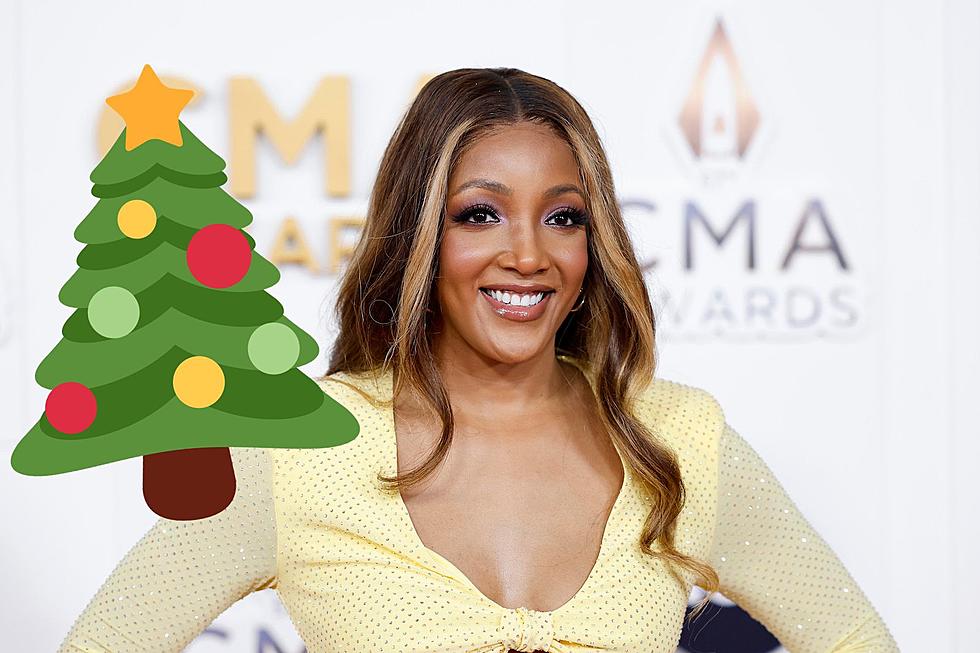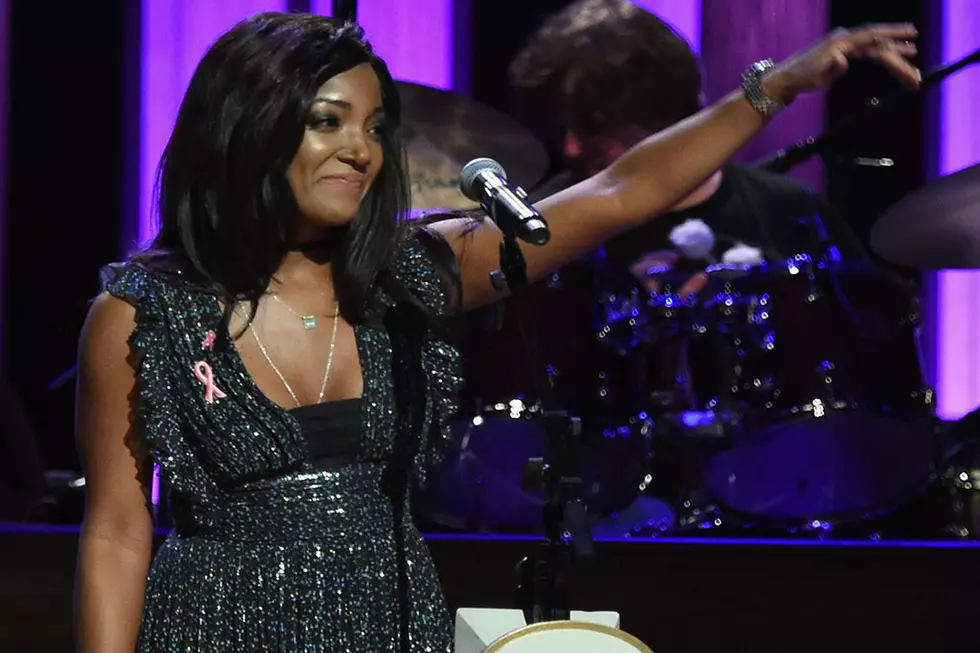
Mickey Guyton’s ‘Black Like Me’ Puts Into Words Her Struggles in Nashville, Too
Mickey Guyton's new song "Black Like Me" describes a childhood spent feeling different and out of place because of her skin color, but in a new interview, the singer says it was inspired by her struggles in Nashville, too.
Guyton, a Texas native, has been signed with Capitol Nashville since 2011. She has released two EPs, but no full-length albums; her most successful single, chart-wise, was 2015's "Better Than You Left Me," which peaked at No. 34 on the Billboard Country Airplay chart.
"I did Nashville the Nashville way for so long, and I had seen so many women do Nashville the Nashville way, with very little results, and that's kind of how I felt within my own life as being a black woman," Guyton tells NPR. "I was having to face that and feel that, and go through studio sessions or makeup sessions having all these people around me that don't look like me telling me how to do my hair and my makeup, and me a lot of times having to do my own hair, because people don't know how to do my kind of hair. And me turning in a song and it automatically being [declared] too pop."
Guyton admits that while "everything was always available to me," she felt pressured "to please and to fit in." She felt unable to make art that others supported: "If I went too country, if I went traditional, it was not current enough. And then if I made it poppier, then I was too pop," she says she was told.
"I know people believed in me, but I don't think they were sure of me. Their certainty in me wasn't available to me. And that was really, really hard," Guyton reflects. "I think what was not available to me was a clear plan. My own choices were not available to me. Choosing my own songs wasn't available to me. Any time I turned in a song, it was dissected more than others' ... There's nobody else like me in this space, so anytime they tried to compare me to somebody, they couldn't quite put their finger on it."
Adds Guyton, "It had to be all of those moments for me to get to a breaking point where I needed a song about it." She'd been holding onto the title "Black Like Me" -- inspired by the book of the same name by John Howard Griffin -- for a "forever and ever and ever," she says.
"And when we finished it, [writer-producer] Nathan Chapman said, 'This could either be the biggest song of your career, or it's gonna make a lot of people angry. But I think we just wrote one of the most important songs of your career,'" Guyton remembers. "People aren't used to hearing that much honesty in a song, because we don't write honesty anymore."
Guyton's "Black Like Me" verses -- the first about being teased on the playground, the second about her father working "twice as hard" to "live that good life" -- are ripped from "things that I internalized as a little kid," she explains. Her father used to go into work early "just to solidify his space," and worked overtime to send his kids to private school.
"The neighborhood we lived in, they didn't want black kids to go to that school. So not only did the public school that I should have gone to not accept black people, the private Christian school, Trinity Lutheran, that I went to, my best friend in class said that her parents called us 'n--lets,' and laughed about it," Guyton remembers. "Every part of that song is something I've experienced."
"Black Like Me" has been done for about eight months, the singer says, and she'd planned to film a music video and release it with more fanfare; however, between the COVID-19 pandemic and the recent high-profile deaths of Ahmaud Arbery, Breonna Taylor and George Floyd -- all people of color -- at the hands of white men, Guyton wasn't comfortable promoting herself.
"I was like, 'Here. Take it. No, there doesn't need to be promotion, because that's tacky,'" Guyton says. "This is not about me. This is about the bigger spectrum of things and about humanity. And that's why we did it. It was purely to try to at least get people to hear different perspectives."
The reaction to "Black Like Me," Guyton says, is unlike anything she's ever experienced. "My inbox on my Instagram has never looked like this before. I've never seen that type of viewership, and people reaching out," she says.
"I'm trying to get [back] to everybody, because everybody matters to me, even the ones that don't agree with me — besides racist people. Obviously, I have no time for that, because racists do not have a place in this country and need to go back to their cubbyhole," Guyton adds. "But people that don't understand, those are the ones I want to reach, so that they can see the perspective."
These Country Songs Were Born From World Tragedy:
More From Taste of Country


![See Which Country Stars Went to the 2024 Kentucky Derby [Pictures]](http://townsquare.media/site/204/files/2024/05/attachment-Wynonna-Judd-Thomas-Rhett-Lee-Brice-Randy-Travis-Kentucky-Derby.jpg?w=980&q=75)
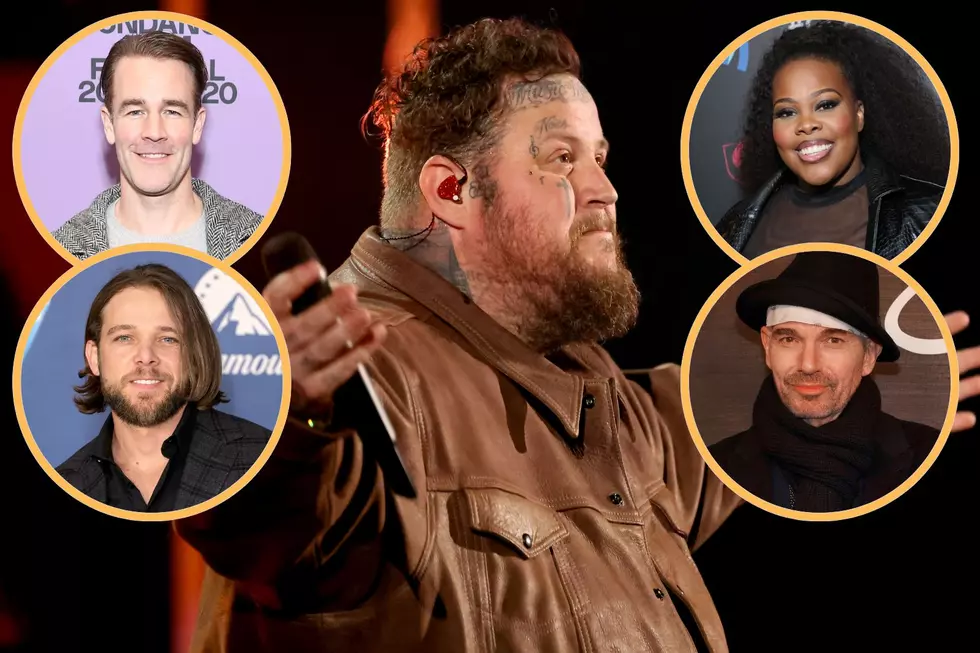
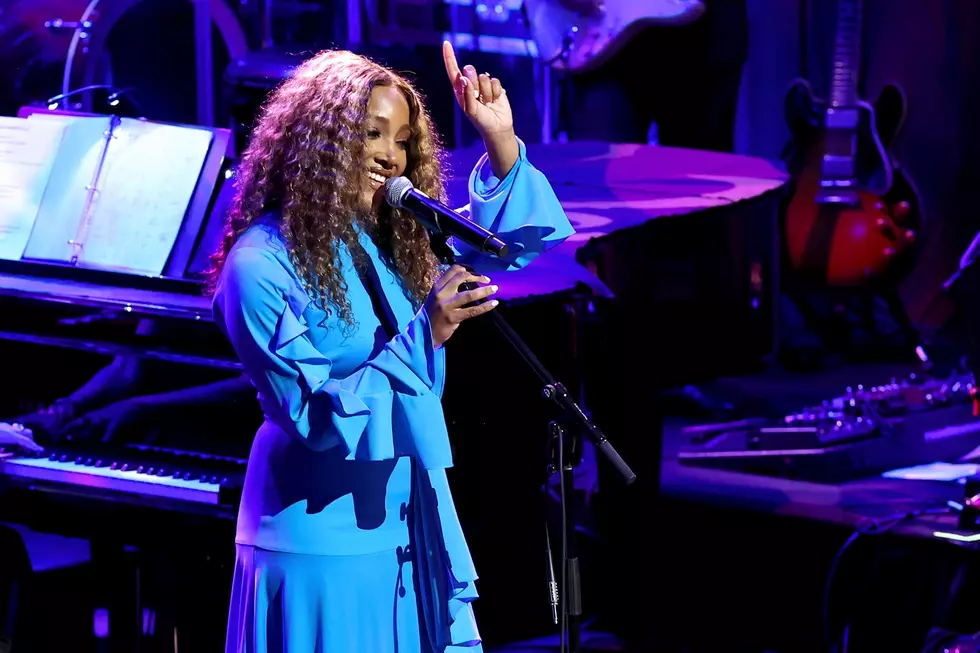
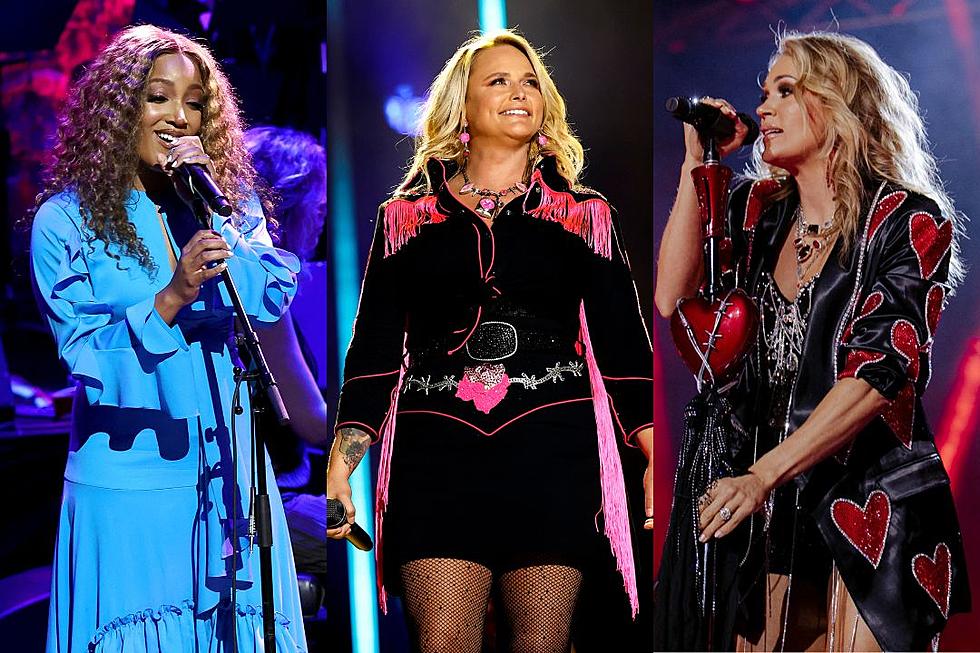
![Mickey Guyton’s Son Visited the White House + All He Wanted Was Cake [Watch]](http://townsquare.media/site/204/files/2023/12/attachment-MickeyGuyton.jpg?w=980&q=75)
